Shaping Vancouver 2017: The Future of Heritage in Vancouver
Conversation 3: Subcultural Heritage – Emergence of Social Diversity and the Creation of Heritage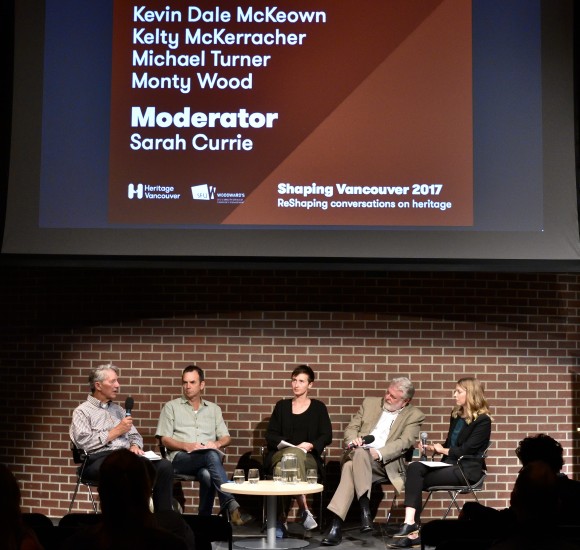
As part of the Shaping Vancouver 2017 series, this session focused on the subcultural heritage in Vancouver. By definition, subcultures are oppositional in nature and exist outside of the mainstream. As they fight for changes and recognition, these marginal cultural practices may assimilate and change society as a whole in the long term. Various subcultures have emerged and taken root in Vancouver such as punk rock, the LGBTQ community, hippies, the Georgia Straight, and Greenpeace and environmentalism. Sarah Currie initiated a panel discussion that focused on the heritage of these subcultures and the identities formed and discussed how these could be recognized and protected. A short audience question period followed.
Moderator
Panelists
Community-engaged artist and Expressive Arts Therapist. Growing out of her work in harm reduction, she founded Illicit, a community-led performance project addressing the opioid overdose crisis. As the Program Manager of the Community Arts Council of Vancouver, she co-founded the Reframing Relations program bringing Indigenous and non-Indigenous artists together to spark dialogue about reconciliation. She is an advocate for the role of the arts and the knowledge held by communities in shaping the city.
Kevin Dale McKeown
His career in journalism, media relations, and event management began as the Georgia Straight’s first openly gay columnist in 1970. After nearly two decades as a gay news columnist and as an arts and culture reporter for a myriad of publications, Kevin began a second career as a cultural event marketer. More recently, Kevin has revisited the stories of the early days of Vancouver’s gay community with a column for Xtra West, and has also been involved with media relations and community engagement for a number of different advocacy initiatives including Alliance News. As a result of a long and varied career, Kevin was inducted into the Q Hall of Fame Canada in 2011.
Michael Turner
Vancouver-based writer of fiction, criticism and song.
Monty Wood
Attendee at both the official UN congress and the non-governmental forum at Habitat I, and the UN’s first conference on human settlements in Vancouver of May 1976.
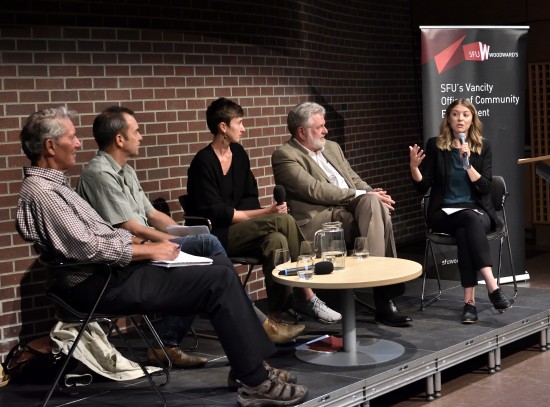
Broader conceptions of heritage can include acknowledge of intangible practices – how does this concept of intangible heritage hold relevance in what you do?
Kelty McKerracher responded that we first need to recognize the heritage we live within, as there are histories that precede the heritage we usually talk about when we talk about the city. She added that recognizing and engaging in learning about heritage is the most important part of her work as a community-engaged artist – she noted that there are incredible artists who have highlighted the richness of community by creating art with the people within their neighborhoods. Kevin Dale McKeown stated that one of the challenges faced by the LGBTQ community is that their spaces were found, and not purposefully made for them – after the LGBTQ community left, there was no memory of that heritage, and there has not been much discussion on how to reconcile this. He stated that oral traditions are important, but one of the specific challenges is that the LGBTQ culture was transgressing, and convincing the powers that their spaces were worth preserving was hard to do – in other words, it is difficult to retain connections to historic places, and it is difficult to find ways to gift these memories to people who did not experience them.
Michael Turner, mentioning his background in alternative music and the literary scene of Vancouver, spoke about the changes in spaces of artist-run culture, event programming, and alternative music. He touched upon the challenge in displaying intangible heritage, stating that intangible culture informs the making of the object, which is unseen in culture – these unseen elements can be made available through interviews and told stories. Michael Turner then suggested that introducing civics in public education could promote urban subjectivity and social responsibility, and encourage the youth to think of the city not just as a market, but as a place to live – heritage could be used as an education tool and a talisman for a livable city. Monty Wood discussed his experience with the Habitat First Forum in 1976 – he described this as an important event for Vancouver because it was the first time planners came together to address social problems and imbalances in urban societies. The urban planners came together at a recycled facility of old airplane hangars leftover from WWII on Jericho Beach – however, if you walk down Jericho today, there is only a small sign and a few posts left.
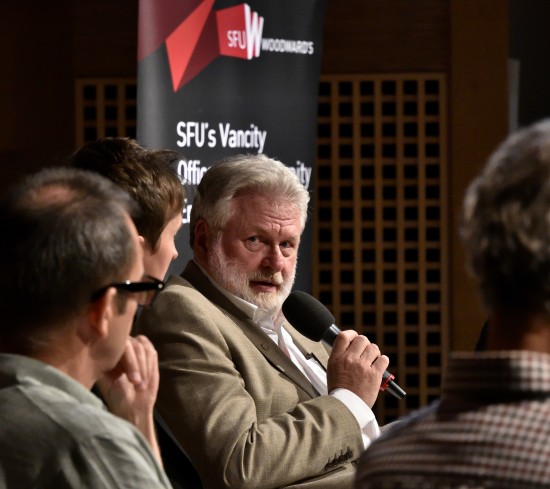
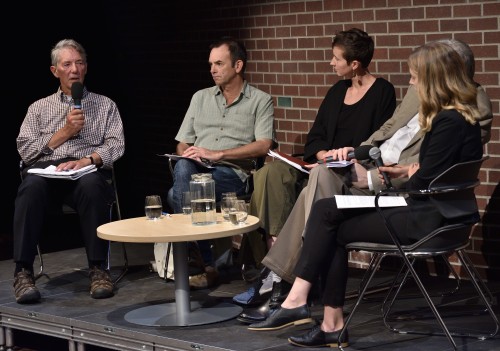
What are your thoughts on spaces that were important for a particular subculture, but no longer exist? What role does space play in what you do?
Kevin Dale McKeown responded with the example of the Granville Mall – the construction of this building erased earlier heritage, the heritage of other people. During the 60s and 70s, this space held importance to many groups in underground cultures, including the LGBTQ community. There is a similar experience today with the Downtown Eastside and in Chinatown, where one group is attempted to establish dominance over a space and erase someone else’s heritage. Michael Turner articulated the distinction between place as a marker, as places as mutability – there are many communities going through the same place. For example, the Japanese Hall on Alexander Street constructed in 1928 was built from another building, and this space was where the first punk rock concert was held in Vancouver – this is part of the space’s history, and it is part of the stories told. He then said that groups move through spaces in a city and form a geometry, and this experience of heritage could be commemorated. Kelty McKerracher responded that, while she personally had not experienced such stories, she felt a curiosity to search for a sense of belonging in the city. She then said that through art, some communities can reclaim their space, even if there is no lasting mark made. There are many memories left unknown, which can lead to a sense of loss and dislocation, but there is also a need to acknowledge the revitalization of certain spaces. Kelty McKerracher also stated that there was a responsibility of the city to support work that allowed people to come together and create work to serve as a collective memory.
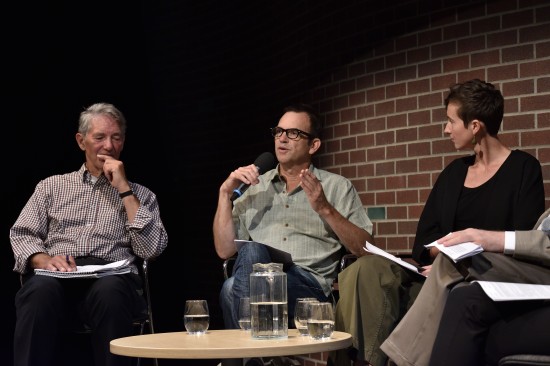
Considering commemorations – why is there a fractured city and a fractured subculture? What are the real ways one can reenergize this sort of topic?
Monty Wood first responded that Vancouver is a very interesting city – Vancouver has an attractive post-quality and seems easily understood, leading to curiosity and interest that draws people in. Kevin Dale McKeown added that an explanation for the fragmentation of the city and the various communities is a lack of communication, despite the fact that there were many spaces that many communities flowed through. He mentioned a specific location on Davie Street, which was the site of the first drag bar in Vancouver, then became a famous folk club in the 60s, then a basement of a restaurant. The same owner later opened a gay club and live jazz music club on Hastings Street, which was also the same location of a prominent gay club in the 50s. He then concluded that many communities create a repository of memories in the same space. Michael Turner answered that money and speculation were key elements in fragmentation, and the lack of interest in the past is because there is no money in it. He described a temporary interest in Vancouver’s past in 2007 with Fred Herzog’s photography exhibition of Vancouver in the 50s; however, he reiterated that market forces were pervasive, and caused gaps in society due to people leaving out of hope or dread. Kelty McKerracher responded that demolition of venues, such as art spaces, social housing, and cultural spaces, showed the values promoted by the city today. She described Chinatown as an expression of tangible and intangible heritage – 800 Block in East Hastings was a punk venue, and later became known as Hastings Dance for its flamenco dance space; however, this space, which was valuable for a small community, is now owned by Chip Wilson and is no longer open to the public. Kevin Dale McKeown also added that efforts to save spaces is often hindered by economic forces and political will.
Considering trying to preserve spaces and memories – how would you like to see these intangible heritages preserved and continued?
Monty Wood answered that in the 70s, each community in Vancouver had an information centre where small committees were formed to generate opinions, and these gave ideas to neighbourhood planners for new directions for new spaces – it would be nice for these to return. Michael Turner responded that the way to preserve is to make things matter and convince people that things matter – he reiterated his earlier suggestion of making civic matters part of the curriculum in public schools. Kevin Dale McKeown suggested using commemoration is spaces as an informative tool of the history of a space, or activating spaces again – why don’t musicians gather again in Basement Street? He added that it was important to make sure that everyone knew everyone else’s history; walking tours in areas like Chinatown could be an example. Kelty McKerracher responded that more mischief was needed, and this energy needed to be harnessed and expressed – adding fun into serious matters would motivate others to act, and there is a necessity to add more energy into life, into neighbourhoods, and into the city itself.
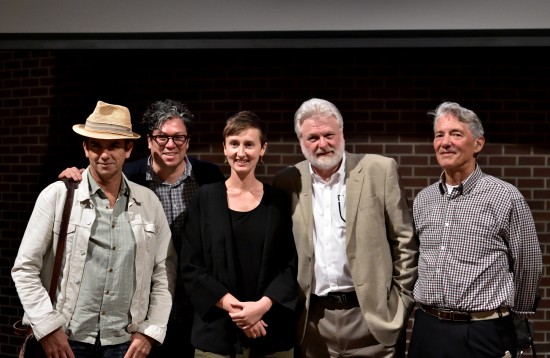
Questions from the audience
Heritage is more than about the buildings, it is about the people – in the subcultures mentioned, where does the community play a role in subcultural heritage?
Where can subcultures live? Because places are hard to maintain in an ever-changing city, technological innovations can make it easier to learn about the history of the space.
The word ‘preserve’ implies that something is static and not living; the word ‘enable’ allows us to assume that everything is constantly changing, and allows different voices to be heard.
Michael Turner agreed, adding that we can preserve values we hold without the constraints of finance and political space. Kelty McKerracher also added that the word ‘animate’ could also be used.
Plaques can be updated to keep their effectiveness - what is the economics of the government for conservation of heritage space? The amount of money allocated for the arts? Cultural appropriation versus appreciation? Tolerance versus intolerance?
Vancouver used to have buildings made of wood, and wood decays – with respect to tools such as technology and plaques, how can the future preserve the past?
We acknowledge the financial assistance of the Province of British Columbia. Thank you to SFU’s Vancity Office of Community Engagement for co-presenting the series.
All photo credits go to roaming-the-planet.